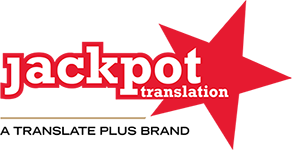
Are you making these sportbook translation mistakes?
Sportsbook translation is a frantic business these days, now that the emphasis for many is placing bets on live events. Split seconds count for everything in this environment, where money is won and lost in an instant. Even the smallest details can make a big impact in sports and this is the magic of placing live bets on the fly.
The only trouble is you have a responsibility to provide 100% accurate reports and stats as things happen, in multiple languages. One translation mistake can result in lost bets, wrong payouts and the risk of lawsuits if users feel they’ve been short-changed.
Long story short, sportbook translation mistakes aren’t something you want to get involved in and here are the most common ones we see.
Language selection isn’t obvious enough
You can never guarantee getting a user’s language right 100% of the time. Sure, you can detect their location (assuming their privacy settings allow it) and automatically set to the national language of the country they’re in – a good way to go about things.
However, this doesn’t solve language selection for those travelling overseas, residing in a foreign country or nations with multiple languages, plus various other scenarios you need to consider.
To cover for these situations, you need a clear and easy way for users to change the default language of your site in a few clicks or less. It’s a good idea to have this in a prominent part of your site – like the header – and make it stand out with some bold colour use or contrast.
Not having a reliable, fast system for ‘live’ translation
We often point out the limitations of machine translation but there are times when you can’t do without it – and this is one of them. The sheer pace of sportsbook translation, due to the rapid developments in sporting events, means you need almost instant translations.
To ensure your translations roll out quickly enough, you’ll want some sturdy machine translation to get you most of the way. This takes a fast, reliable system that automates the entire process for you but also makes fast edits a breeze. We’re talking about Google Translate here; you’ll want something far more sophisticated to get the kind of pace and accuracy you need.
Failing to localise your sport and betting terminology
Sports terminology can be tricky enough to translate as it is, but things are even more challenging when you throw betting into the mix. You’re not only dealing with sports slang and variations in different languages but also the betting terms used across various parts of the world.
It’s not always a case of finding the right translation either; sometimes it’s a question of knowing what not to translate. Certain sports and betting terms are universal or partly universal between certain languages and not others – all of which you need to consider.
Getting the small print wrong
If things ever get difficult with a user your terms and conditions are the first line of defence should you end up going to court. The only problem is they risk being null and void if any translation mistakes are found and this is one of the first and most easiest things for a lawyer to look into.
It’s not so much a question of users being able to understand them because nobody bothers to read them anyway. It’s more about making sure you have the legal stuff covered in every market you’re operating in. Legal translation mistakes are another topic altogether – and a pretty ugly one at that.
Not having a process in place for adding new languages
A trap many betting companies fall into is looking at translation as a one-time project. Which means, when the time comes to add a new language into the system, you have to start from scratch and you end up repeating a lot of the same work for no reason.
It’s far more economical to have a process in place for adding new languages in the future. Sure this sounds like a vague concept but there are various things you can do and some of these also touch on localisation as well:
- Create a glossary of terminology and translations
- Structure your website and apps so that resource files are accessible and editable (this will allow you to add new languages without pulling everything apart)
- Get user feedback to help pinpoint issues after release, so you can avoid them next time around
- Keep a history of all your previous translation projects for future reference
- Once you find the right agency, stick with them for consistent results
Some language agencies will automate a lot of the above with software – eg: collecting glossaries and development frameworks. This drastically speeds up future translation and localisation tasks and the rest mostly comes down to the team developing your site and applications.
As we say, sportsbook translation can be pretty demanding and it’s one of those situations where we use software to automate as much of the process as possible. However, the need for speedy translation doesn’t mean we can accept anything but the usual level accuracy – especially when people’s money is on the line.
- Posted by Alexandra Kravariti
- On 23rd January 2017
- 0 Comments



0 Comments